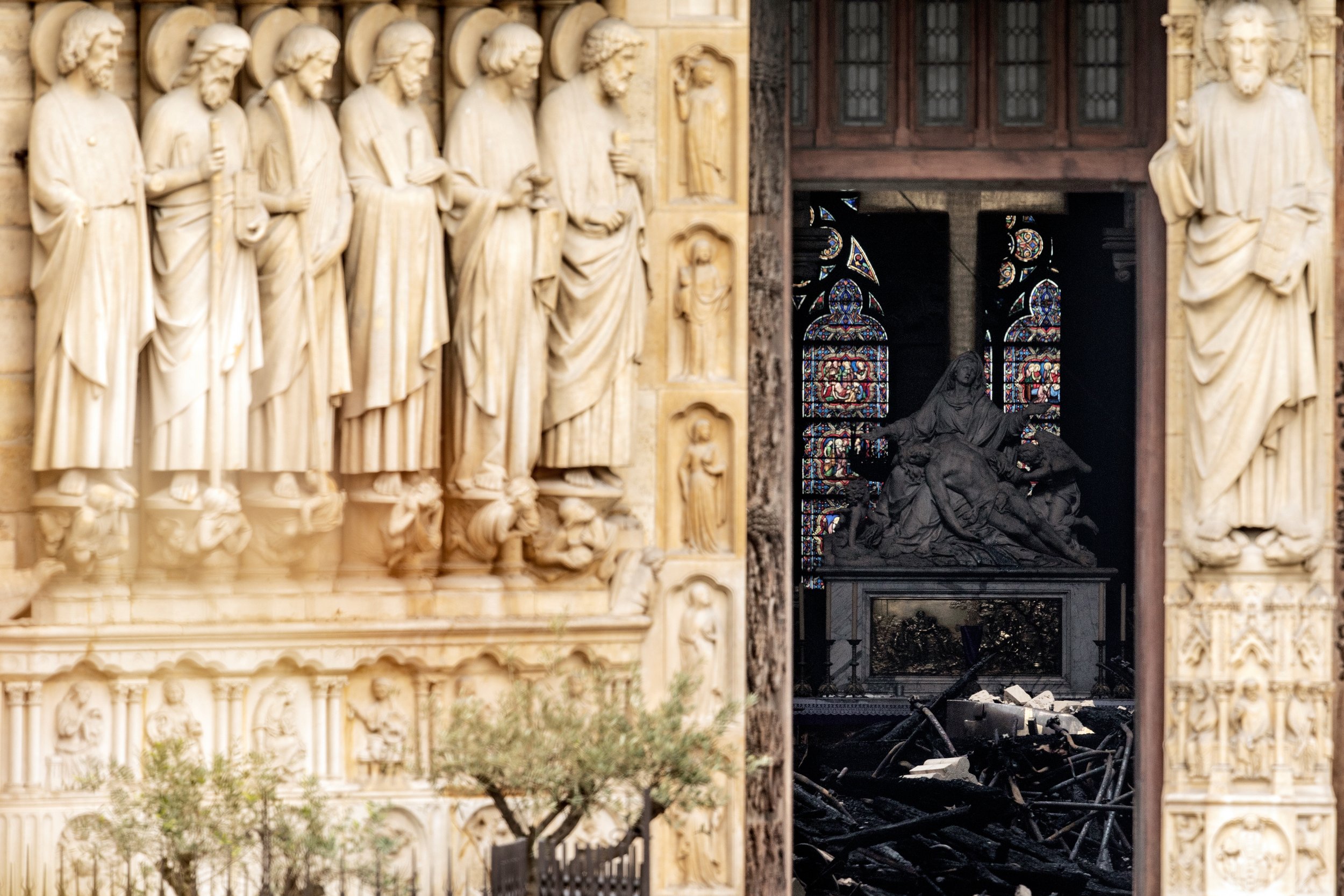
The fire that devastated Notre Dame cathedral is undoubtedly symbolic. A building that was meant to last until the end of time, has proved to be just as fragile as everything else on this planet. And while President Macron has vowed to rebuild this gothic masterpiece at very heart of the French capital, we know there are some things in life that simply cannot be replicated or restored.
But however unexpected the devastation, the reaction has followed a well-rehearsed script. News of the event spread across social media almost as quickly as the flames, showing again that globalization is less about our ability to travel around the world than for the world to appear before us. What followed was yet another example of a global outpouring of grief, which connects and divides us in equal measure. From the death of celebrities and public figures, to these public symbols of identity, we have learned to feel something intimate to people and objects so distant from our lives.
Somewhat predictably, critics have quickly rallied against these sentiments, pointing out the perceived hierarchies of suffering at work, which are seen to be revealing of what society truly values. With the crocodile tears wiped away from sentimental or privileged eyes, if there was something to glimmer through the smoke, it was our often-hidden prejudices.
Watching the events unfold, I too was saddened and joined the chorus of voices who felt the need to express such sadness in a public way. There is no joy to be gained from seeing this architectural wonder reduced to ashes. I did this mindful of the fact that often we can be selective on the issues that affect us. And I also did this acutely aware of the role the Catholic church has played in the history of colonization, the persecution of untold numbers of peoples, from the indigenous of Latin America to centuries of abuse against young children, and how these buildings are so frequently used as symbols for misguided claims regarding the supremacy of white Christian Europeans.
But why must we continue to see grief as a zero-sum game? Can we not mourn such devastation without diminishing our capacity to mourn for other forms of destruction too? Can we not learn to recognize the grief others feel without dismissing and imposing a more righteous hierarchy of sorrow that merely inverts suffering?
There is perhaps something more at stake here, which points to the ways we narrate history and make sense of the present. Across social media, we have also seen people openly celebrate the destruction, as if the accident was something akin to a form of divine retribution. It's almost as if histories of pain can only truly be exorcized through such violence, as if the falling spire might fatally wound a once imperious despot.
It is not a revolutionary idea to suggest that a marked break with history requires a total erasure of the past. It has been imperials who have mastered this, from Spanish conquistadores in Latin America, with the willful destruction of indigenous civilizations, onto the continued destruction of palaces, museums and statues today, in many cases by ideological movements like the Taliban or the Islamic State. Such acts are tantamount to what the critical theorist Henry A. Giroux has called "the violence of organised forgetting". Indeed, my last visit to Paris was in the summer of 2001, a year marked by an even more devastating, lethal inferno, deliberately instigated in an attempt to erase a symbol of America's global might.
Beyond an appreciation of the gothic as a truly creative and inspirational movement, my own affinity for Notre Dame was set by Victor Hugo's Hunchback tale, which still remains a truly remarkable human fable of prejudice, the violence of the mob, and the tragic conditions of love and the longing for acceptance in the world. My point is that such symbols can have deeply contested and personal meaning, there is no definitive truth about what they represent, for better and certainly for worse.
Paris is often burning with the anger of its persecuted immigrant populations. Europe is burning with the aggressive fires of unshackled fascists. And the planet is burning, which means that in the end everything might go up in flames. So, if we can take anything symbolic from this act of destruction and some of the tedious side-line cheering and proclamations which have followed, it is perhaps to have a less divisive public conversation on grief; to learn to deal with each and every act of unnecessary devastation, while still having a more open and honest conversation about symbolic meaning, beyond dogmatic and entrenched positions of political purity.
Brad Evans is a professor of political violence and aesthetics at the University of Bath. He is the author of many books and articles, including, most recently, Atrocity Exhibition: Life in the Age of Total Violence (Los Angeles Review of Books, 2019) and Violence: Humans in Dark Times (with Natasha Lennard, Citylights, 2018.)
The views expressed in this article are the author's own.
Uncommon Knowledge
Newsweek is committed to challenging conventional wisdom and finding connections in the search for common ground.
Newsweek is committed to challenging conventional wisdom and finding connections in the search for common ground.
About the writer
To read how Newsweek uses AI as a newsroom tool, Click here.








